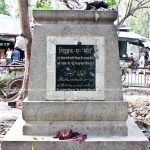The Changing Face of State Police
Javeed Ahmad, IPS talks about Significance of Leadership & Accountability
Sushil Silvano
It is always a treat to meet someone who contradicts the prototype image; Javeed Ahmed is one such person who is the very antithesis of this mental image of a member of the police force that exists in public mind. A suave, clean shaven person with endearing, honest eyes exuding confidence from behind shining reading glasses, he looks more like a professor than a police officer. With a disarming smile, few words but deep understanding of his profession, Javeed Ahmed is known in the police fraternity for his honesty, integrity, devotion to duty and an unflinching loyalty to fair play that has earned him friends all over.
A scion of the illustrious Ahmed family of judicial luminaries of Patna, Bihar, Javeed Ahmed belongs to the 1984 batch of the Indian Police Service (IPS). Assigned the Uttar Pradesh cadre, he has occupied several key positions in the State. Currently serving as Additional Director-General, Government Railway Police, Javeed Ahmed had a very successful five-year stint with the Central Bureau of Investigation (CBI).
While in the CBI he was associated with some of the most significant cases involving mishandled public funds by high-ranking politicians and bureaucrats, extreme corruption, malfeasance, criminal conspiracy and outright loot, forgery and fraud, involving government funds to the tune of cumulatively exceeding Rs.10,000 crores. The famous case of Century Financial Consultants, involving the Johri brothers of Lucknow, is still fresh in the minds of Lucknowites. This case too was investigated by Javeed Ahmed. The Rs.35,000 crore food grains scam, the NRHM Scam, which resulted in the brazen murders most foul of two Chief Medical Officers of Lucknow besides some others, the Fodder Scam involving Lalu Prasad Yadav and Jagannath Mishra, the Arushi double murder case of Ghaziabad and several others cases.
We reproduce important excerpts:
Uttar Pradesh police is still governed by the 1861 Police Act, which had been framed by the British who needed an occupation force. The world has changed since then. India is now a free country but our Police continue to be governed and administered by means of the same Police Act of 1861.
It is indeed true that we are still governed by the old, at times, archaic 1861 Police Act. It was actually fashioned after the Irish Constabulary Act, which again suited the function of an occupation force. But police laws have changed quite a bit in Ireland as the situation obtaining there has changed with the times.
Why then no need has been felt in India to improve and amend this Indian Police Act. Have the times not changed in India?
There is a clamor for change in India too but the response has not been very fast. In fact, the Supreme Court is seized of the matter and had ordered Indian States to frame their own Police Acts, Some States like Bihar and Orissa have actually gone ahead and done just that. Unfortunately, these states have not been able to capture the spirit of the apex court’s order. Mr. Prakash Singh, a former DGP of U.P. is pursuing the matter and the Supreme Court is likely to come out with some guidelines. Since the matter is sub-judice, I will not like to comment further.
Our Provincial Armed Constabulary (PAC) has been lauded for its effectiveness and fair play by other States where PAC’s help has been sought ?
I do not blame the poor lower ranks. You cannot run any para-military force by sitting in air-conditioned comfort, insulated from reality prevailing outside. What we need is to change our administrative methods, training, orientation and ground leadership. Efficiency, like corruption, flows from top to bottom. To make PAC impartial and more efficient, we will have to provide leadership, good leadership, on the ground, more important than this will be to make this leadership accountable. Accountability instills discipline and adherence to rules. Thus efficiency goes up naturally, on its own, without any outside push. Accountability will have to be enforced with an iron hand, no two opinions about it. Accountability can only be enforced when there is proper training, adequate resources and correct orientation.
The CBI has a strong contingent of policemen on deputation. Why is it that the same policemen do not inspire confidence when they are in the state police but they enjoy full public faith when they are in the CBI. What is your understanding of this strange public behavior?
The CBI is quite insulated against pulls and pressures of all kinds. There is less work load so the Investigating officer or team gets time to conduct investigations thoroughly. The investigation tools are the same but the results have been different in the case of CBI as against the state police.
Won’t a separate prosecution wing help in a better rate of conviction?
As a thought it is very good. Actually this was introduced in 1973. But wherever the prosecution wing is separated from the investigation wing, the rate of conviction has always come down. This is the empirical truth. Even now we have this system where the prosecutor is not directly under the police. While the police is expected to file the charge-sheet, produce evidence and witnesses in the best manner possible, it just happens that the prosecutor may have his own take on the case. More often than not, the case ends in acquittal. More thought and effort have to be put in this regard so that prosecution becomes more result-oriented.
Considering the fact that counter-terrorism is an integral part of modern day policing. Do you think that State Police has officers willing to adapt to the need or do we still believe that Intelligence Unit postings are ‘punishment’ ?
This could be true 20 years back. The situation is not so now. Officers have started opting for Intelligence postings.
Is it because there is no accountability and one can work in the intelligence for 30 years and retire from service without having done any work?
True to some extent! Indeed there is no accountability in the LIU or other levels of Intelligence machinery. We will have to devise new training methods, new intelligence gathering methods, make available needed resources and make posting in the LIUs a matter of pride. Modern anti-terrorism work.
Writer is a veteran journalist and Author. He is President of Lucknow Journalist Union.
(Published in The Lucknow Observer, Volume 1 Issue 12, Dated 05 March 2015)




